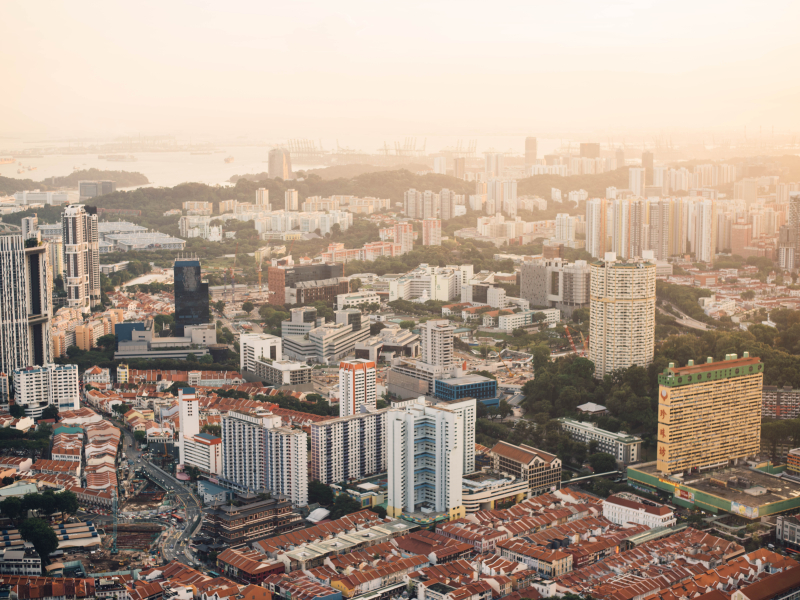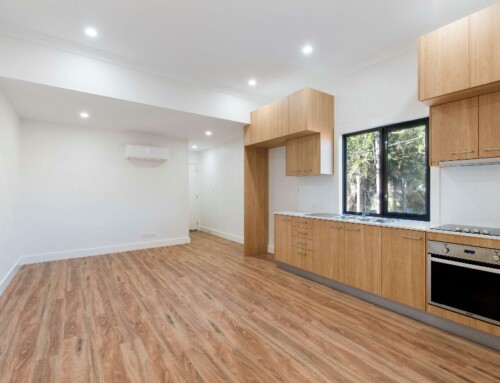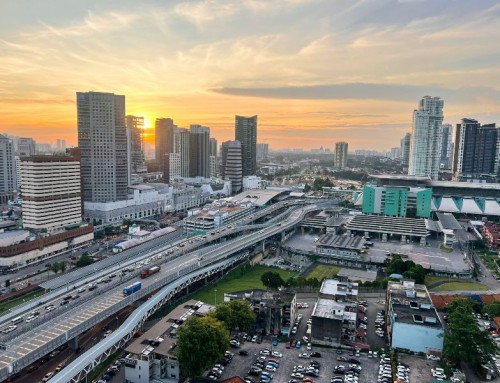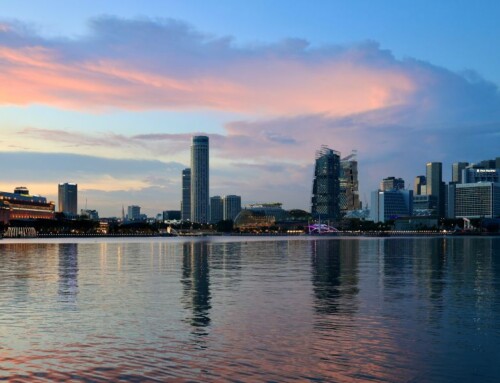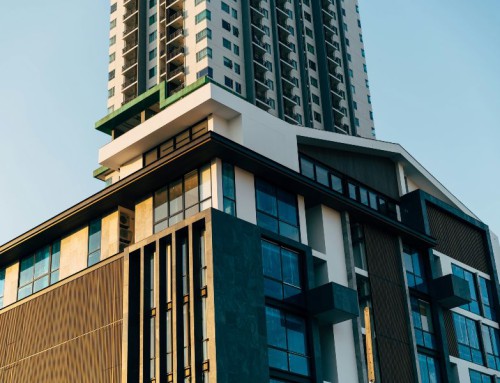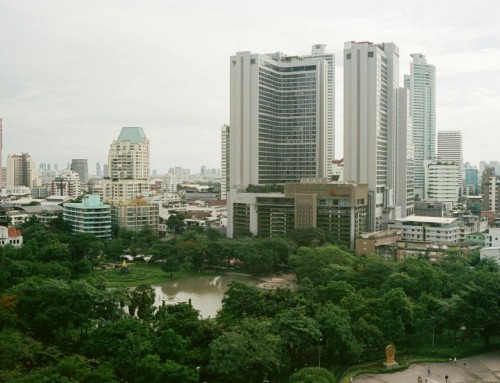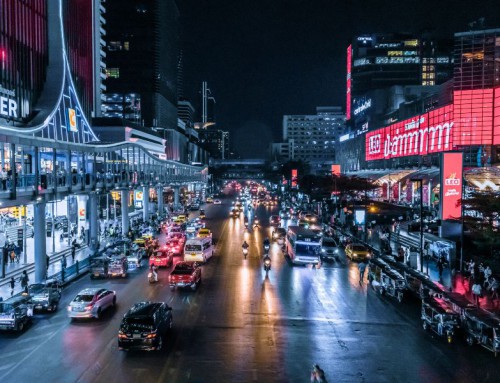New Property Cooling Measures: Higher ABSD and tighter loan limits
On the 5th of July, the Singapore government announced a slew of property cooling measures to try to cool the seemingly overheating property market. Among the measures were higher Additional Buyer Stamp Duty (ABSD) rates and tighter Loan-To-Value (LTV) limits for residential properties.
Here is a table showing the latest Additional Buyer Stamp Duty rates in comparison with the previous rates.
New Additional Buyer Stamp Duty (ABSD) rates. To come into effect on the 6th of July 2018.
| Rates on or before 5th July 2018 | Rates on or after 6th July 2018 | |
|---|---|---|
| Singapore Citizens buying first residential property | 0% | 0% |
| Singapore Citizens buying second residential property | 7% | 12% |
| Singapore Citizens buying third and subsequent residential property | 10% | 15% |
| Singapore Permanent Residents buying first residential property | 5% | 5% |
| Singapore Permanent Residents buying second and subsequent residential property | 10% | 15% |
| Foreigners buying any residential property | 15% | 20% |
| Entities (such as companies) buying any residential property | 15% | 25% (an additional 5% for developers purchasing residential properties for housing development) |
Do take note that the ABSD is an additional stamp duty on top of the prevailing Buyers Stamp Duty for residential properties.
Buyers Stamp Duty on or after 20th February 2018
First $180,000 1%
Next $180,000 2%
Next $640,000 3%
Remaining Amount 4%
Let us now compare some scenarios for a purchase of a $1,500,000 property before and after the new cooling measures
Singapore Citizen buying second residential property. A purchase price of $1,500,000:
Total stamp duty payable on a $1,500,000 property on or before 5th July
Buyers Stamp Duty = $44,600
Additional Buyers Stamp Duty = $105,000
Total Stamp Duty = $149,600
Total stamp duty payable on a $1,500,000 property on or after 6th July
Buyers Stamp Duty = $44,600
Additional Buyers Stamp Duty = $180,000
Total Stamp Duty = $224,600
An increase of $75,000 in stamp duties payable
An entity (such as a company) buying a residential property. A purchase price of $1,500,000:
Total stamp duty payable on a $1,500,000 property on or before 5th July
Buyers Stamp Duty = $44,600
Additional Buyers Stamp Duty = $225,000
Total Stamp Duty = $269,600
Total stamp duty payable on a $1,500,000 property on or after 6th July
Buyers Stamp Duty = $44,600
Additional Buyers Stamp Duty = $375,000
Total Stamp Duty = $419,600
An increase of $150,000 in stamp duties payable
Revised Loan To Value limits on housing loans for individuals granted by financial institutions
| 1st Housing Loan | 2nd Housing Loan | 3rd Housing Loan onwards | |
|---|---|---|---|
| Loan-To-Value Limit | Existing Rules 80%; or 60% if the loan tenure is more than 30 years* or extends past age 65 Revised Rules 75%; or 55% if the loan tenure is more than 30 years* or extends past age 65 | Existing Rules 50%; or 30% if the loan tenure is more than 30 years* or extends past age 65 Revised Rules 45%; or 25% if the loan tenure is more than 30 years* or extends past age 65 | Existing Rules 40%; or 20% if the loan tenure is more than 30 years* or extends past age 65 Revised Rules 35%; or 15% if the loan tenure is more than 30 years* or extends past age 65 |
Revised Loan To Value limits on housing loans for non-individuals granted by financial institutions
| Loan-To-Value Limit | Existing Rule 20% Revised Rule 15% |
|---|
So what prompted the Singapore government to come up with this latest round of cooling measures?
1) The overheating property market
You could not say that these cooling measures were not expected. The Singapore residential property market is showing signs of excess exuberance for the last year or so. Prices have steadily declined for four long years prior to the 3rd quarter of 2017 but staged a sharp recovery of 9.1 per cent over the past year. Many property analysts had predicted that property prices would reach new historical highs by the end of 2018 and if left unchecked, these predictions could very well come true.
2) Developers were getting too aggressive
Every other week there was news of the latest development being sold en bloc. Developers were getting extremely aggressive in stocking up their land bank. Look at the latest collective sale attempt by Horizon Towers. In 2007 the SGD$500 million attempt failed but today, 11 years later, the reserve price is set at SGD$1.1 billion. Prices did rise in the 11 years that passed but the prices which en bloc sales were being transacted for in 2018 really raises many eyebrows.
3) Buyers needed some protection
A government has to protect the interests of its people. This is why policies are created to protect consumers and this latest cooling measure is designed to do just that. It is hard to fathom how purchasing properties in relatively obscure places like Serangoon North at prices in excess of SGD$1500 could turn out to be a wise decision. Prices have gone way ahead of fundamentals and the fear of missing out mentality was really taking over. Many buyers were buying because they anticipated that future new project launches would be more expensive. They were not buying because they looked at fundamentals and made calculations that future rental income collected was more than future monthly instalments on the property.
4) Fundamentals are sound but not strong
Singapore economically is doing well. The Singapore economy expanded 3.6% in 2017, way better than most analysts’ estimates. However, there are potential headwinds which may put paid to our past years of good growth. The possibility of a trade war between the two largest economies is still prevalent. Asset prices across the world are extremely high and the low-interest rates are constantly adding to the already growing froth in the economy. I personally believe that the next recession should not be as severe as the one that just passed in 2008 but still, a slowdown might just be around the corner. As the US tightens its monetary easing and scales down on its asset purchases, there will be less liquidity in the market. With the Federal Reserve raising interest rates slowly but surely, interest rates in an open economy like Singapore will follow suit.
So where do we go from here?
It is clear as daylight that the Singapore government will not want prices to increase as sharply as they had in the last year. An annual property price growth of 9.1% was sufficient for them to come up with this latest round of cooling measures. Thus it will be safe to say that prices should not grow by anywhere close to what it did in the last year.
1) Rational buying should begin to set back in
I have always maintained that a property to most people is their single largest investment in their lifetime. The purchase should not be made in the heat of the moment. Unlike stocks, it is difficult to diversify one’s property portfolio and it would be wise to sit down with a professional property agent if you are keen to make a property investment. Looking at the prevailing rental rates in the area and focusing on potential upcoming developments and amenities around the area to judge a property’s worth is a lot better than buying something because a development nearby was just sold en bloc at a ridiculous price and prices are anticipated to rise because of this.
2) Buyers must understand that future price growth will not be as much as what previous generations experienced
My parents bought a 1600 square foot, freehold condominium in Serangoon for about $550,000 about 24 years ago. Today it is worth about $1.6 million and if a developer steps in to purchase the development en bloc, their payout may be around $2 million. Property price growth in multiples is just not going to happen in today’s market. Today, a brand new 3 bedroom 99-year leasehold condominium in Park Place Residences goes for around $2 million. Chances are that in 24 years time, that same unit will not be worth $6 million. Many are basing property investments on what previous generations have reaped and this may not be an accurade depiction of that is to come in the future.
3) The government is hoping to cool the supposed en bloc fever
The hardest hit group with the latest ABSD are the developers. Previously, developers had to pay 15% ABSD but from 5th July 2018, the ABSD for developers is 30%. This is double the previous ABSD payable and is a clear sign that this is a particular point of focus for the Singapore government. Even though an en bloc sale rejuvenates the area, it adds a considerable number of units on the same plot of land. Serangoon Ville comprised of 244 apartments and Affinity at Serangoon which will be developed on the same site will house 1012. Eunosville had 330 units and Parc Esta which will be developed on the same site will yield as many as 1,399 units. For those developments up for collective sale, owners will be to be more realistic with their prices as developers will need to cough out twice the amount of ABSD as before just to acquire their properties.
4) Entities are hardest hit in this round of cooling measures
Heavy-handed many may call it but if you are a fund or an entity looking to purchase a Singapore residential property, you will have to cough up 25% worth of ABSD just to make your purchase. Foreign companies especially those looking to add Singapore properties to their portfolio should be put off by the latest round of property cooling measures. It does seem like the Singapore government is trying to keep property prices affordable for Singaporeans, especially first time home buyers.
5) Cooling measures are here to stay
Remember back in March 2017 when the holding period of the Sellers Stamp Duty was reduced from 4 years to 3 years? Many in the property industry were hailing this as the start of the gradual but eventual removal of the cooling measures. Fast forward to slightly more than a year and that statement seemed grossly inaccurate. Moreover, developers were blindsided by the this latest round of cooling measures and many new launches which were slated for the weekend opened their showroom almost immediately when they learned of the latest cooling measures. This knee-jerk reaction shows that the announcement of such measures is really kept secret to the point of announcement. If you are looking to buy a property, do not be rushed into the purchase just because someone is telling you that there will be more cooling measures implemented in the future. No one knows when they will be implemented and no one has inside information as to what the Ministry of National Development will implement in the future.
6) The real estate industry will have to up its game
Buyers will become more discerning. The usual sales pitch of buying before prices rise must be replaced with proper financial planning and a decent analysis of the amenities and reasons for possible price appreciation and rental demand. The sale pitch for when cooling measures are relaxed was that prices are going to rise and buyers should rush in to buy now as it is cheaper now. The sales pitch for when cooling measures are implemented was that there may be more cooling measures so it is better to buy now to pay lesser stamp duties. Hopefully, many real estate agents will take this opportunity to improve and upgrade themselves to become financial consultants. I personally have been in this industry since 2003 and I do hope that this industry does evolve in that direction.
7) Buyers will have more bargaining power
Under the Residential Property Act, developers with foreign shareholding will have to complete a project within five years and sell all the units within two years. Thus these developers have a total of seven years from the date they bought a particular land to build and sell off all units. If buyers were truly rational, they would band together and demand a significant discount once the cooling measures were announced. Instead, many rushed to show flats to book units just to save on the stamp duty and have their loan accessed based on a higher loan-to-value. The market structure of the primary home sales industry is an oligopoly. Developers are dominant in their position as compared to buyers. It would be difficult to break this domination but with the latest cooling measure, buyers should remain calm about making their purchase and future prices may be a little friendlier.
Here is a nice explanation about what an Oligopoly is:
Imagine if all buyers refused to enter the show flats unless the developers agreed to strike say 10% off the listed price. It sounds far-fetched because it is difficult to pool together a large pool of buyers to negotiate with a small group of developers. However, is there a possibility that developers will slash prices moving forward? Those with highly leveraged balance sheets will definitely have to consider doing so.
8) First time home buyers are generally unaffected
The only group of people generally unaffected by these latest round of cooling measures are the Singaporean or Singapore PR first time home buyers. This is a good time to be a first time home buyer as prices should ease off a little. The only difference for this group of people is the5% reduction of their loan-to-value and that is perhaps a good thing for them to exercise a little bit more prudence. Moving forward prices for upcoming new project launches should be priced to sell. If you are a first time home buyer that has been patiently waiting on the sidelines, your reward should be a market where developers will be looking to entice you to buy with lower prices and more attractive promotions.
9) Perhaps it is time to diversify your investment portfolio
I have always maintained that many people in Singapore see property as the only form of investment that they should make. There are other asset classes that should be considered like stocks. Nett rental yields are extremely low and in some cases, placing your monies in things like Singapore Savings Bonds may yield healthier returns. Please remember that there are people who do lose money through property investment just like any other form of investment. The people who lose money are a lot quieter than the people who make money. Thus it seems like many people are making money through property investment. I do agree that property investment is a good method to grow a persons wealth. If Singapore is so restrictive and prices are at an all-time high, investors may consider looking elsewhere. I personally have been involved in the Bangkok property market and I do find places like the United Kingdom and Japan as decent places to purchase a property if you understand the market well enough.
What can we take away from the latest round of cooling measures? One thing is for sure, the Singapore government has the tools to reign in property prices if the increase is too sharp. Buyers should adopt a calmer approach when purchasing properties and truly seek professional advice before buying. The Singapore government has accorded them this luxury with the latest round of cooling measures.
Yours Sincerely,
Daryl Lum
